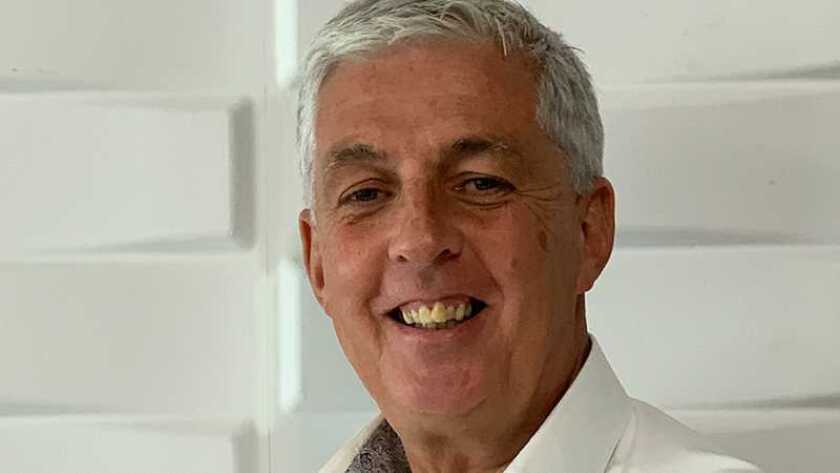Digicel’s Caribbean and Central American operations are no longer selling minutes and megabytes to their customers, but digital experiences, thanks to a collaboration and partnership with Turkcell, says the new CEO. “I arrived in July 2020 and we launched the digital operation in all our markets on 20 October,” explains Oliver Coughlan.
He joined from Digicel’s sister business in the Pacific, running operations in places such as Fiji, Papua New Guinea and Tonga. This was 20 months after group CEO of Digicel, Alex Matuschka, died suddenly during a family holiday, just days after completing a refinancing agreement with the company’s lenders.
At the time, the group’s owner, Denis O’Brien, took charge of Digicel as interim CEO. Former Veon CEO Jean-Yves Charlier, who was executive vice-chairman of Digicel, later took over as group CEO.
With Coughlan’s appointment to run the Caribbean and Central America, O’Brien took over management of the Pacific operations, “but we are very much aligned”, says Coughlan. “We have the same vendors, the same shareholder and same objectives.”
The shareholder — just one — is that same O’Brien, an Irish businessman and media mogul who 30 years ago set up Esat, Ireland’s first competitive telecoms operator, initially in partnership with Telenor. In 2000 he sold the business to BT for a reported €250 million, and the following year founded Digicel in Jamaica, to compete with its incumbent.
In the 20 years since O’Brien set up his first operation, Digicel has expanded across the Caribbean islands, into Central America and across to the South American mainland, to more than two dozen operations. Jamaica is still the headquarters of the group.
Diversity and complexity
That gives Coughlan an extraordinary diversity of companies to run. Some serve huge populations: Haiti has 11.4 million, El Salvador 6.4 million and Panama 4.1 million, for example. But there’s also Montserrat, with just 4,600 people, St Barthélemy with 10,000 and Anguilla with 15,000.
There is a complex range of constitutional and regulatory set-ups and currencies. The East Caribbean dollar (XCD), used in eight countries and territories, is worth about US$0.37. But you get 150 Jamaican dollars to the US dollar. Conversely, the Cayman dollar is worth more than the greenback: US$1.22.
The British Virgin Islands, El Salvador and the Turks and Caicos Islands don’t bother with any of that, but just use the US dollar. Those that are part of the Netherlands use a local currency that is pegged to the dollar.
Territories that are legally part of France use the euro. Across the business, that’s 14 currencies in all.
Nevertheless, says Coughlan, “it’s a well-oiled machine. We have a pan- Caribbean network and a pan-Pacific network. Geographically that makes sense.”
Each market in the business “has a regional CEO who reports in to me. The chairman and I talk to all the markets twice a week, on Tuesdays and Fridays.” Each operation has its own profit and loss targets, “but we piggyback on services with the group team supporting the CEOs.” And there are centrally run mobile financial services.
Facebook rivals
With the Turkcell agreement still only a few months old, Digicel hopes to get customers to use its own range of services and away from rivals run by the hyperscale giants.
“There’s BiP Messenger. It’s getting people away from WhatsApp on to our platform,” says Coughlan, adding that it is getting to the point at which there are enough local users for it to be viable.
Like WhatsApp, owned by Facebook, BiP Messenger allows customers to send text and voice messages, make voice and video calls, and share images, documents, user location and other media. “You can do up to 10 video calls,” says Coughlan. “It’s much more user-friendly [than WhatsApp]. It’s a more embedded application.”
According to Digicel Jamaica’s website, customers can also use BiP to send conventional SMS messages to non-BiP users. BiP can give users a second phone number, and there’s a translation service.
Mobile payment services are also on offer, with links to outside Digicel’s own operations — “Somebody in Haiti can send dollars into New York.” And people can remotely buy credit for Digicel customers.
“All this is done centrally as a group,” notes Coughlan. Jamaica is the hub of Digicel’s Caribbean and South American operation. “We monitor a large number of markets from here,” he says. Fiji plays a similar role for the Pacific operation. “All the KPIs [key performance indicators] come into the central team.” There is no monitoring team in any one market, he adds. “It is all done remotely.”
Wholesale connectivity
One of the key roles for the central team is wholesale, where international connectivity is arranged and purchased centrally. “Divide and conquer doesn’t work,” says Coughlan.
“It’s much more important to operate as a group. We have wholesale deals with all the operators, roaming deals with all the international carriers.” These mainly operate via a connection into Miami.
What about Deep Blue Cable, I ask. This emerged almost four years ago as a pan-Caribbean subsea project that was also backed by O’Brien, although that fact emerged only after Jamaica’s Daily Gleaner newspaper revealed him to be its main shareholder. It was unclear at the time whether the idea was to compete with the subsea services of Cable & Wireless — now owned by Liberty Global — pretty much the only inter-island carrier in the region.
In late 2018, Digicel announced that Deep Blue was coming in to aid a multi-million dollar, 15-year ICT contract with the governments of the Caribbean nations of Saint Lucia, Grenada and Saint Vincent and the Grenadines. Steve Scott, then CEO at Deep Blue Cable, said: “The unprecedented scope and scale of this project will ensure a transformative result for the people of these countries and establish the Caribbean as a leader in the global economy.”
But things have moved on. Deep Blue Cable is no longer a separate entity, having been acquired by Digicel in July 2019, though there was no public announcement. Scott left at the same time and, according to LinkedIn, now chairs Virtual1, a wholesale network company based in London.
As a result of the acquisition of Deep Blue Cable, “we have 3,100km of subsea cable,” says Coughlan.
Earthquakes and storms
Like few other operators on Earth, Digicel has been subject to extraordinary stresses: in January 2010, Haiti suffered a magnitude 7.0 earthquake that killed 250,000 and injured 300,000 more. The quake demolished thousands of buildings, particularly in Port-au-Prince, the capital city. One of those to survive was Digicel’s network operations centre, because it was built to earthquake-proof standards, and the Digicel team, and O’Brien himself, took a lead in helping Haiti to rebuild.
Rather more common, but thankfully more predictable, are hurricanes. They arrive every year: in 2016 Haiti was hit by Hurricane Matthew, creating the country’s largest humanitarian emergency since the 2010 earthquake. Matthew also crossed the Bahamas before moving along the Florida coast and fizzling out off the Carolinas.
“When a storm develops, we track and predict it,” says Coughlan. “We have a very resilient network — it’s built for earthquakes and storms. We have learned our lessons.”
Those lessons include the provision of spares of standard network equipment in key locations, from suppliers such as Ericsson, Huawei and ZTE, “but we don’t use Huawei in the core or in the billing”, just for links, backhaul and radio. “We have a very good relationship with Huawei: their technology is state-of-the-art, and they are a very good company to deal with.”
Education and community
Coughlan and his whole team are immensely proud of the Digicel Foundation, which has invested $156 million so far in education, special needs and community development in Haiti, Jamaica and Trinidad and Tobago — as well as Papua New Guinea in the Pacific region — and is staffed entirely by Digicel people who volunteer their time.
The first foundation was launched in Jamaica in 2004 in the wake of Hurricane Ivan, which caused devastation across the island. Since the Haiti earthquake, the Digicel Foundation has provided schooling to 60,000 children a day, and it trains teachers and provides school meals.
It’s not just earthquakes and hurricanes that have given Digicel a bumpy ride. In May 2020 the company filed for bankruptcy protection, with debts of $7 billion. Its lenders agreed to cut those to $5.4 billion, with annual interest payments down by $125 million.
It stayed in business throughout the process, but it was hit more than many by the pandemic, with foreign tourists staying away. “Our roaming income is down 80%,” says Coughlan. That’s a key reason for Digicel changing its offer. Fortunately, he says, it’s worked. “We’re back into growth — back to our pre-Covid levels.”






